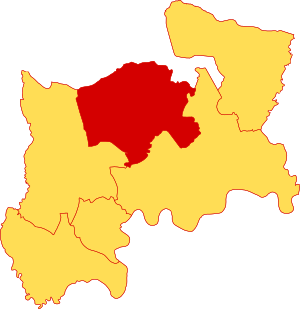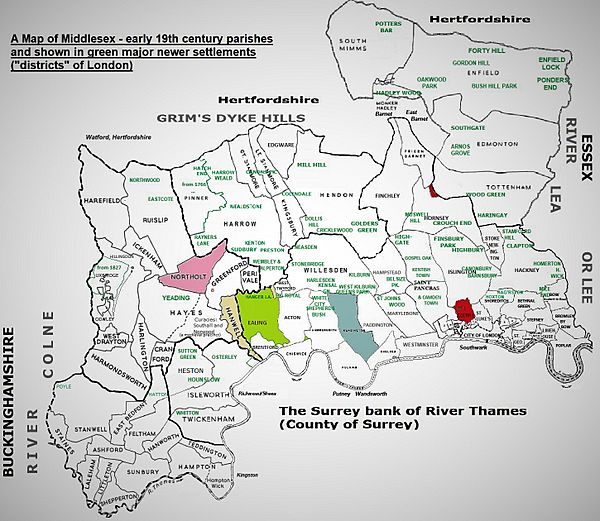Gore Hundred facts for kids
Gore was a special area or "hundred" in the old county of Middlesex, England. Think of a hundred as a historical district, a bit like a modern-day county or borough, but much older. It was used for things like collecting taxes and holding local courts.
The name "Gore" comes from an old word meaning a piece of land shaped like a spear head or a triangle.
Where Was Gore Hundred?
Gore Hundred was located in the northern part of Middlesex. Today, this area is mostly within parts of London. It covers areas like the Borough of Harrow. It also includes about a third of the Borough of Barnet, which has places like Hendon and Edgware. Plus, it covers about a third of the Borough of Brent. A small part of Elstree was also included.
Historians know a lot about Gore Hundred from old records. These records include the Domesday Book and other important documents. They tell us about the different villages and estates within the hundred.
Villages and Parishes in Gore Hundred
The main villages and parishes (church districts) that made up Gore Hundred were:
| Parish | What part of the hundred it covered |
|---|---|
| Edgware | A small parish along the northern edge. |
| Harrow | This was a large area, covering about two-fifths of the western hundred. It included places like Wembley, Alperton, and Sudbury. |
| Hendon | This parish covered about a third of the eastern hundred. |
| Kingsbury | A small parish near the southern border of the hundred. |
| Great Stanmore | A long, narrow parish in the north, next to Harrow and other areas. |
| Little Stanmore | Another long, narrow parish in the north, next to Edgware. |
| Pinner | This area was part of Harrow until 1766. It made up the north-west quarter of Harrow. |
By the end of the 1400s, there were about 22 "manors" in Gore Hundred. A manor was a large estate or land area. Most of these manors had their own local rights. This meant they did not always have to follow the rules of the main Hundred Court. For example, Westminster Abbey and the Archbishop of Canterbury had special rights. Other important landowners also had their own liberties.
See also
- HA postcode area and to a lesser extent NW postcode area; most of the HA post towns and numbered divisions are based on the old parishes but reshaped for post service convenience.
 | Percy Lavon Julian |
 | Katherine Johnson |
 | George Washington Carver |
 | Annie Easley |




